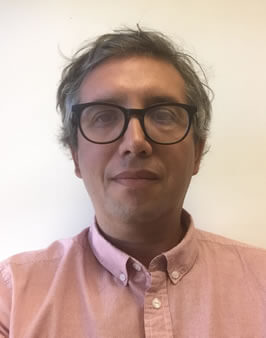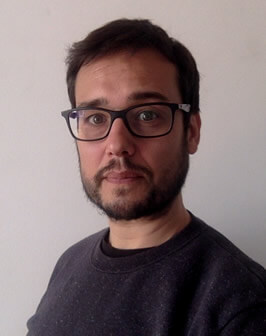
Edge Prize 2018: Manuel Tironi and Israel Rodríguez-Giralt


The winner of the 2018 David Edge prize is Manuel Tironi and Israel Rodríguez-Giralt’s Healing, knowing, enduring: Care and politics in damaged worlds, published in 2017 by The Sociological Review.
In their article, Tironi and Rodríguez-Giralt study how care is invoked by activist groups and local citizens in their search for ethical recognition and environmental justice in Puchuncaví, Chile. They thereby bring together two STS literatures that often inhabit separate spheres: scholarship on the analytic of care and research on environmental justice in toxic landscapes. Mobilizing care enables questions of environmental justice in Puchuncaví to be transformed: the scholar’s role is no longer to highlight marginalized knowledges in technoscientific disaster sites, but to listen to the attempts by the workers of this Chilean copper smelting plant to endure as ethical subjects.
People in Puchuncaví are victims of what Tironi and Rodríguez-Giralt call an uncaring choreography: they are not only exposed to extremely high levels of toxicity, but also neglected and abandoned by the institutions supposed to protect them. This article shows how they resist, through self-care and mutual support—exemplified by the therapeutics of group meetings held by former smelting plant workers demanding compensation—as well as through domestic care, as a mode of knowing and acting upon their harmed bodies and environments.
Reading residents’ activities through the lens of care allows the authors to revisit what activism means in sacrifice zones like Puchuncaví, and to examine the implications and relevance of care practices in the provocation of politics. Tironi and Rodríguez-Giralt thus reflect on how scholars participate in the complex choreography of care and, ultimately, call attention to the importance of stand[ing] ‘in the presence of’ those upon which we exert our good intentions. Arguing for a politics of scholarly engagement that is at once analytical and affective, the paper makes a crucial contribution to discussions about STS scholarship as a mode of intervention.
Tironi and Rodríguez-Giralt’s article was selected from 58 nominees, published in a wide range of high-quality international journals. This exceptionally large pool of candidates included provocative and important contributions that represented the breadth and depth of STS scholarship. We are pleased to honor the winning paper as among the best of what STS has to offer, and recommend it as a humbling, worthwhile, and moving read.
2018 Edge Prize Committee: Gwen Ottinger, Drexel University, USA (Council Member, chair), Teun Zuiderent-Jerak, Linköping University, Sweden (Council Member), and Erika Szymanski, University of Edinburgh, UK (Student Representative to Council)
Acceptance Statement
We are very honored to accept this 2018’s David Edge Prize, and grateful to the prize committee for its careful reading of our article. This recognition is particularly gratifying for us, as it acknowledges a collaboration between scholars from two young but lively STS communities, Chile and Spain. We would also like to thank Natalie Gill, Vicky Singleton and Claire Waterton, the editors of the special issue of the journal The Sociological Review in which this article appeared, for their constant support and generosity. Last but not least, we also want to dedicate this prize to the tireless work of activists and neighbors of Puchuncaví that, despite everything, persevere in their search for environmental justice.
Bios
Manuel Tironi is Associate Professor at the Instituto de Sociología at P. Universidad Católica de Chile, where he co-leads the Critical Studies on the Anthropocene group (www.antropoceno.co). He is also principal investigator at CIGIDEN, the Center for Integrated Research on Disaster Risk Reduction. His latest projects have engaged with issues of toxicity, environmental justice, politics of care, geologic modes of knowing, and indigenous disaster knowledge. He is co-editor of Politics and Disasters: Materials, Experiments, Preparedness (Wiley-Blackwell, 2014), winner of the Amsterdamska Award 2015 by the European Association for the Study of Science and Technology.
Israel Rodríguez-Giralt is Full Research Professor at the Internet Interdisciplinary Institute at Universitat Oberta de Catalunya, where he leads the CareNet Research Group (Care and Preparedness in the Network Society). His research focuses on technoscientific activism and new forms of social experimentation, mobilization and public engagement, particularly in disaster situations. He is co-editor of Politics and Disasters: Materials, Experiments, Preparedness (Wiley-Blackwell, 2014), winner of the Amsterdamska Award 2015 by the European Association for the Study of Science and Technology. He also co-organised the 2016 EASST/4S Joint Conference in Barcelona.
